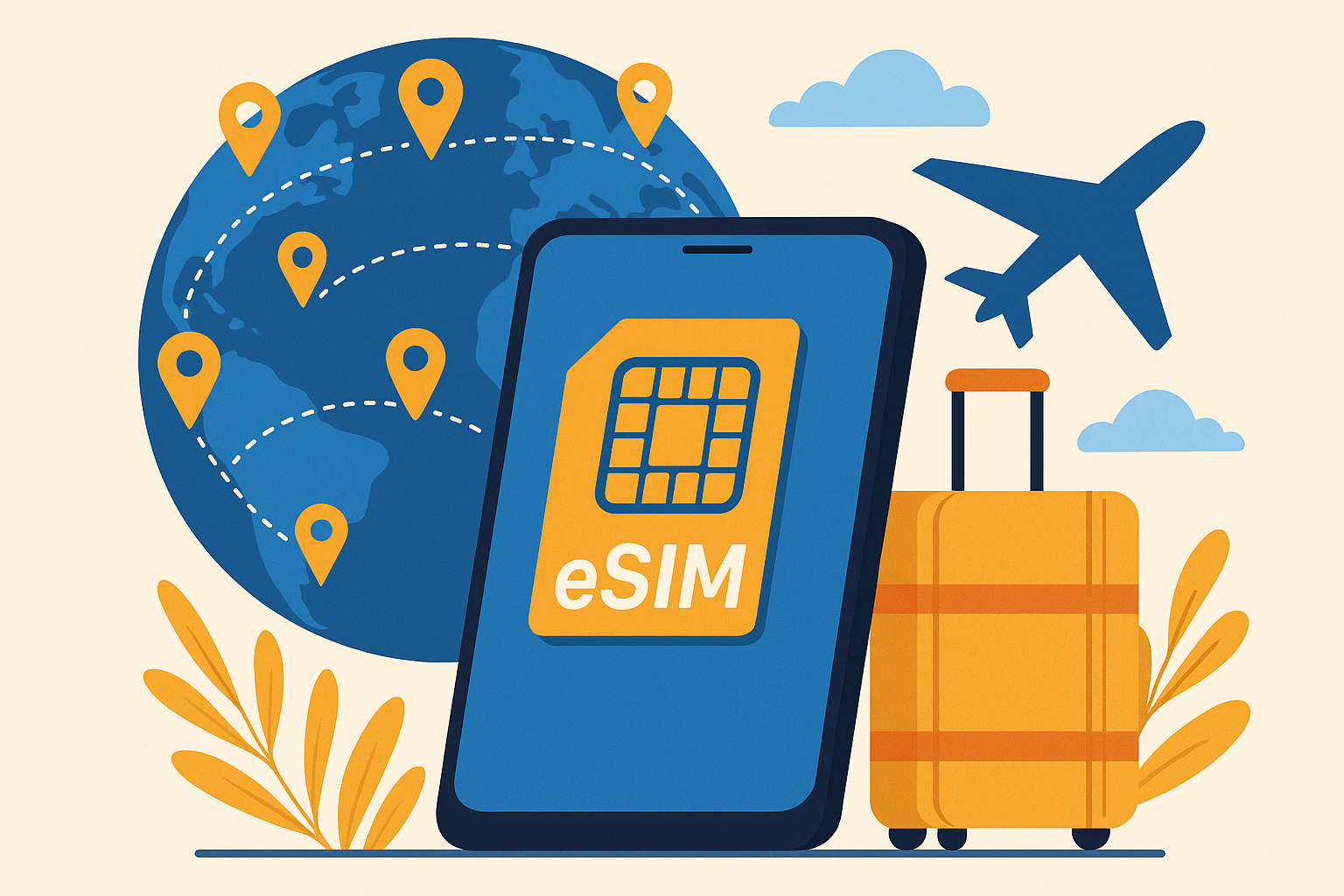The booming demand for seamless, cross-border mobile connectivity has minted a new unicorn: Airalo, the world’s first eSIM marketplace to hit a $1 billion valuation. Backed by a $220 million Series B round led by CVC Capital Partners, the Singapore-based startup is now at the forefront of a digital transformation reshaping global telecom and travel industries.
As investors race to identify the next breakout opportunity in emerging tech, Airalo’s rise offers critical insight into how eSIM technology, travel-tech, and digital infrastructure are converging—especially as international travel rebounds and remote work expands globally.
The Rise of eSIM: Solving the Connectivity Conundrum
eSIM, or embedded SIM, technology eliminates the need for physical SIM cards and enables instant, remote provisioning of mobile data. As of 2025, over 300 mobile carriers globally have embraced eSIM, according to GSMA Intelligence, and Apple, Samsung, and Google now ship eSIM-enabled devices by default.
Airalo’s platform taps into this trend by offering local and regional eSIMs in over 200 destinations, directly targeting digital nomads, business travelers, and tourists tired of carrier lock-ins and roaming fees. With 20 million users and growing, the startup has scaled rapidly on the back of rising demand for affordable, instant mobile data.
Why This Matters for Investors
This $220 million funding round—co-led by CVC and supported by e& Capital, Orange, and Deutsche Telekom’s T-Systems—represents more than just a startup success story. It highlights how global telecom giants are strategically aligning with travel-tech disruptors to future-proof their relevance in the era of eSIM.
Moreover, according to Allied Market Research, the global eSIM market is projected to exceed $12 billion by 2030, growing at a CAGR of over 15%. Airalo’s model—aggregating local telecom services onto a single digital marketplace—positions it as both a distribution disruptor and a platform play within this ecosystem.
For investors, this signals opportunity not just in eSIM startups, but in telecom infrastructure, digital ID authentication, mobile security, and edge cloud platforms—all necessary backbones to support global, remote-first connectivity.
Strategic Partnerships Point to M&A and IPO Potential
What makes Airalo’s ascent especially noteworthy is its strategic alignment with telecom incumbents. e& (formerly Etisalat Group), one of the world’s largest telcos, has doubled down on Airalo to extend its global reach. This suggests a trend where traditional telecom firms may acquire or invest in eSIM marketplaces to avoid disintermediation.
Such developments open the door to M&A activity and IPO speculation. While Airalo hasn’t publicly hinted at a public listing, the involvement of CVC—known for its private equity-to-IPO pipeline—could accelerate this trajectory.
According to TechCrunch, Airalo plans to use the funding to expand its global footprint, integrate AI for smarter data recommendations, and increase its enterprise offerings. This could include white-labeled eSIM services for airlines, hospitality chains, and travel platforms.
Future Trends to Watch
- Enterprise eSIM Integration: Expect growth in B2B use cases as eSIMs power connected fleets, logistics, and global remote teams.
- Digital Nomad Economy: With countries offering remote work visas and global freelancing on the rise, platforms like Airalo are poised to become core services.
- Regulatory Shifts: As regulators mandate eSIM support (notably in the EU and parts of Asia), investor interest in compliance-ready platforms will surge.
- AI-Driven Connectivity Optimization: Machine learning will increasingly drive how users are matched with local carriers based on real-time location, usage habits, and pricing.
Key Investment Insight
The rise of Airalo illustrates a broader digitization of infrastructure in mobility and telecom. Investors should monitor:
- Emerging eSIM platform plays (e.g., GigSky, Truphone)
- Partnership moves by global telecom giants
- Supply chain dependencies in eSIM-enabled devices
- Startups that offer backend infrastructure, including remote provisioning, authentication, and billing
In short: eSIM is no longer niche. It’s a foundational layer of modern connectivity—and the capital flowing into players like Airalo shows the market is ready to back that thesis.
For investors tracking what’s next in global tech disruption, stay with MoneyNews.Today—your source for actionable insights that matter.





